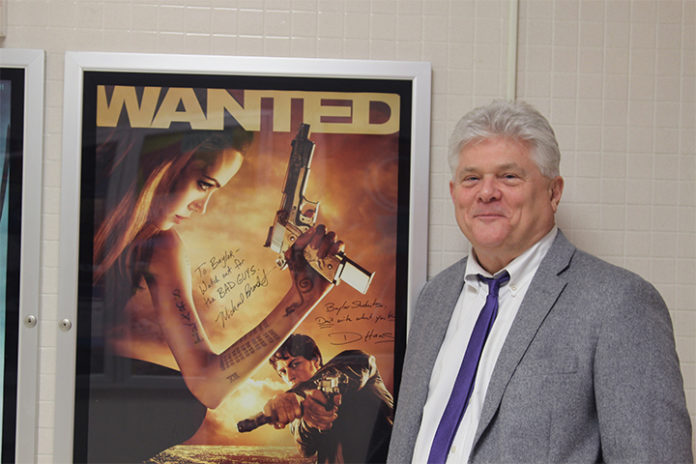
By Joy Moton | Staff Writer
Now that the voices of many Gospel singers from decades ago have been digitally preserved through the Black Gospel Music Restoration Project, workers in the Ray I. Riley Digitization Center are working to preserve sermons of passionate preachers through the Black Gospel Preachers Project.
The project started as an initiative of the Black Gospel Music Restoration Project. Robert F. Darden, professor in the department of journalism, public relations and new media and founder of the project, said African-American preaching and music are interchangeable. Since he has found that most preachers sing and most gospel singers preach, he felt that this would be a great way to expand the project.
“The [Black Gospel Music Restoration Project] has always collected the vinyl of great African-American pastors, such as the Rev. C.L. Franklin and the Rev. Jasper Williams–both of whom released dozens and dozens of LPs,” Darden wrote in an email to the Lariat. “But with the [Black Gospel Preachers Project], we have active begun researching the estates of legendary African-American pastors and the offices of current well-known pastors, with the hopes of digitizing their sermons.”
So far, the collection includes nearly 1,000 video cassette tapes of sermons from Rev. Clay Evans of Chicago’s Fellowship Missionary Baptist Church.
“Rev. Evans was one of only two African-American pastors who embraced and worked with Dr. Martin Luther King Jr. when the civil rights movement began work in Chicago,” Darden wrote. “He is also a legendary composer, author and singer – the [Black Gospel Music Restoration Project] already had dozens of his LPs.”
Various people from the digitization center who are working with the project said they have been impacted by the uniqueness of black preaching. Darryl Stuhr, assistant director for Digital Projects Group, said he was captivated by the passion he has heard expressed through black preaching.
“I just pulled up a sermon to make sure the file transferred, and then I think I ended up watching 20 minutes of it because I was so pulled into the passion,” Stuhr said.
Irvine, Calif., senior and student assistant Evangeline Eilers has listened to over 500 sermons, adding scripture references, songs and keywords so that online searchers will be able to find the sermon they are looking for more quickly.
As a history major, Eilers said she has enjoyed getting to learn about the situations facing Evans during the period from the 70s to the 90s. She hopes the collection will be put to good use once it is released to the public.
“It’s an amazing collection, and I came into this not knowing anything about this topic whatsoever, and I’ve just grown to love it,” Eilers said. “I hope people will appreciate it because there’s a lot of work that’s gone into it.”
Representatives from George W. Truett Theological Seminary have expressed a significant amount of interest in the project, providing a list of preachers whose sermons they would like to have digitized. Darden said the partnership is designed to expand this program in hopes of making Baylor the center for the study of historic African-American preaching in the world.
“Whether we’re digitizing the Browning letters for the Armstrong Browning Library or the Gospel Project or the Preachers Project, I feel like we’re just preserving important pieces of history,” Stuhr said.





